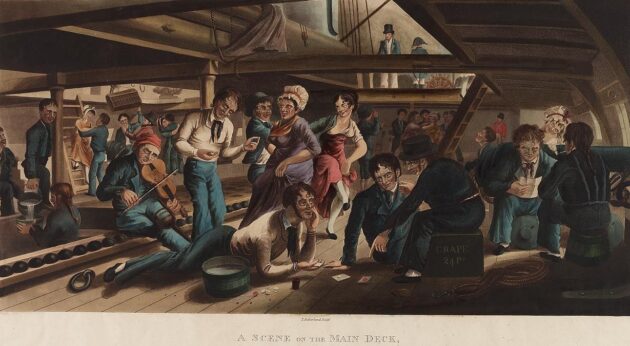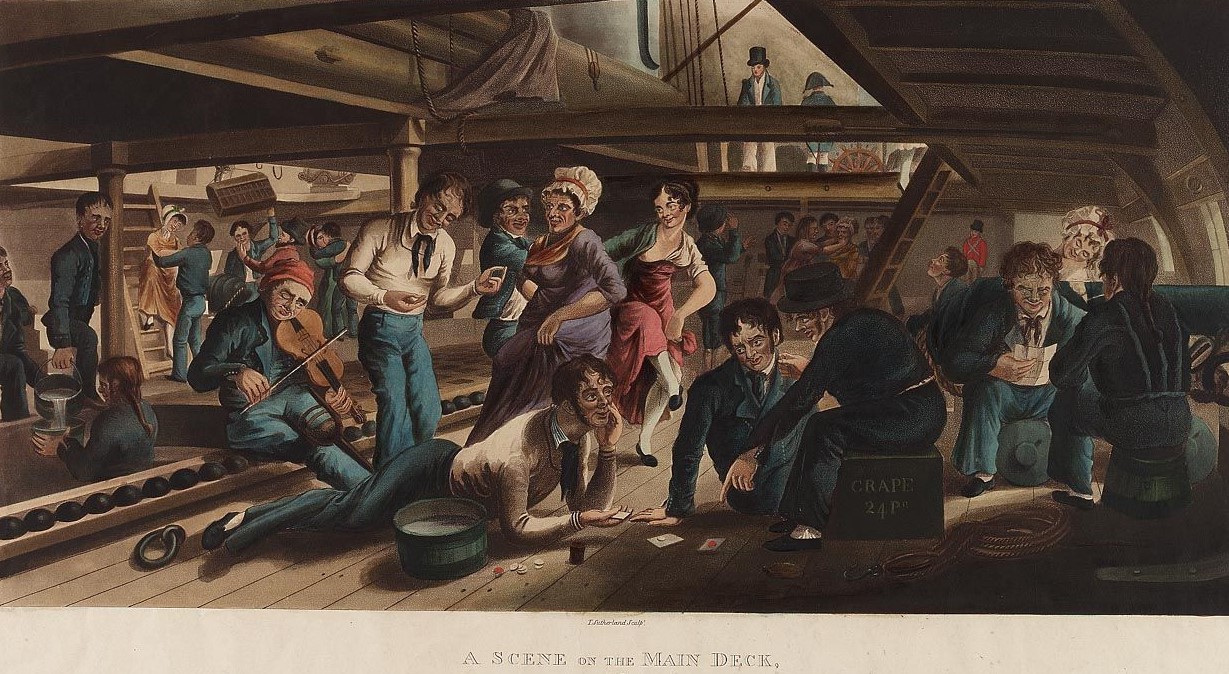Gerry
Son of a Gun
Lit: a bachelor, a rogue, a cad or a bit of a chancer
This phrase has a long history but it is possibly another nautical term harking back to the days of sail, when seamen would often smuggle women friends on board naval vessels. Whilst not officially approved, a blind eye (another phrase coming up soon) was turned to this practice as it led to a certain contentment on the lower decks and, apart from fights over women, the seamen were generally better behaved with women to look after their needs, mend clothes, assist with the cooking and, of course, share hammocks.

From time to time babies were the product of these unions and in cases where the father was, shall we say, indistinct, the baby was christened by the Captain as a son (daughter) of a gun. In the ship’s log, a birth was often described then as an extranumery and called for example ‘Ben’ Gunn. This latter character was, of course, one of the protagonists in Treasure Island (or to give it its full title, Treasure Island, a book for boys) by Robert Louis Stevenson.
This suggests Stevenson was well aware of the tradition of naming children born at sea as a son of the gun. The expression became less derogatory and more affectionate as in reference to a deed involving some daring or cheek. For example, ‘That son of a gun really helped us succeed!’
The term originated in the 18th Century and was sometimes applied to the son of a soldier (a gun) but it is mostly associated with the sea-born infants of sailor’s women. That term ‘women’ was also used to define a class – the men had women, officers had wives and captains had ladies! Thus the sailor’s women could also be their wives but the key part of the phrase referred to youngsters cradled against the gun.
However, as I began to research this phrase the origin seemed more complicated. Certainly, there were instances of sailors taking their wives on board ships but this was a rare practice, especially on fighting ships. These vessels were often overcrowded and there was scarce room for the regular crew, let alone women. Sometimes officer’s wives did sail on fighting ships but this was not that common. Merchant vessels of the era were, however, often well-armed to deter pirates or freebooters and so the phrase, as applied to ships, was more likely associated with armed merchantmen than fighting ships. So how did the phrase emerge? It is probably a combination of a number of origins, none of them necessarily discrete. Most likely the origin was simply that of the absentee father, a soldier or a seaman away fighting the innumerable wars of the 17th and 18th Centuries.
A more believable suggestion for the origin of the term shifts the focus onto the occupation of the father and away from the location of the whelping (which fanciful lore would have us believe was on a deck between two guns, rather than in a cot in an officer’s cabin or in a screened-off corner of the sick bay). In that explanation, “gun” refers to “soldier” (equating arms with the man, as it were), making any soldier’s or sailor’s male child — conceived in wedlock or not — a “son of a gun.” Alliteration (repetition of sounds) and well-cadenced rhymes were just as well-loved centuries ago as they are now, thus our forefathers would have delighted in “son of a gun’s” inherent ear appeal in the same way we were slyly pleased by “the Thrilla in Manila” and “in like Flynn.”
Whatever the reason, even if the origins may be somewhat fanciful, the history of the phrase takes us back to the hard times below decks, the inherent danger of long sea voyages when as many as half the crew would die of scurvy, or the thought of the soldier fighting and dying in foreign wars.
Please share this BFD article so others can discover The BFD.

